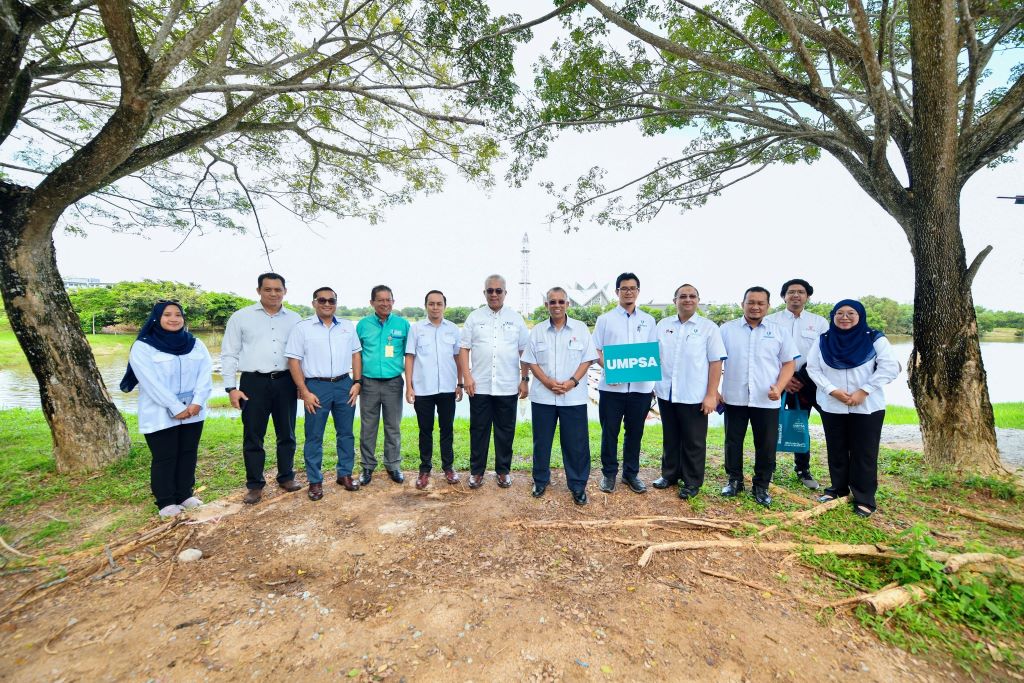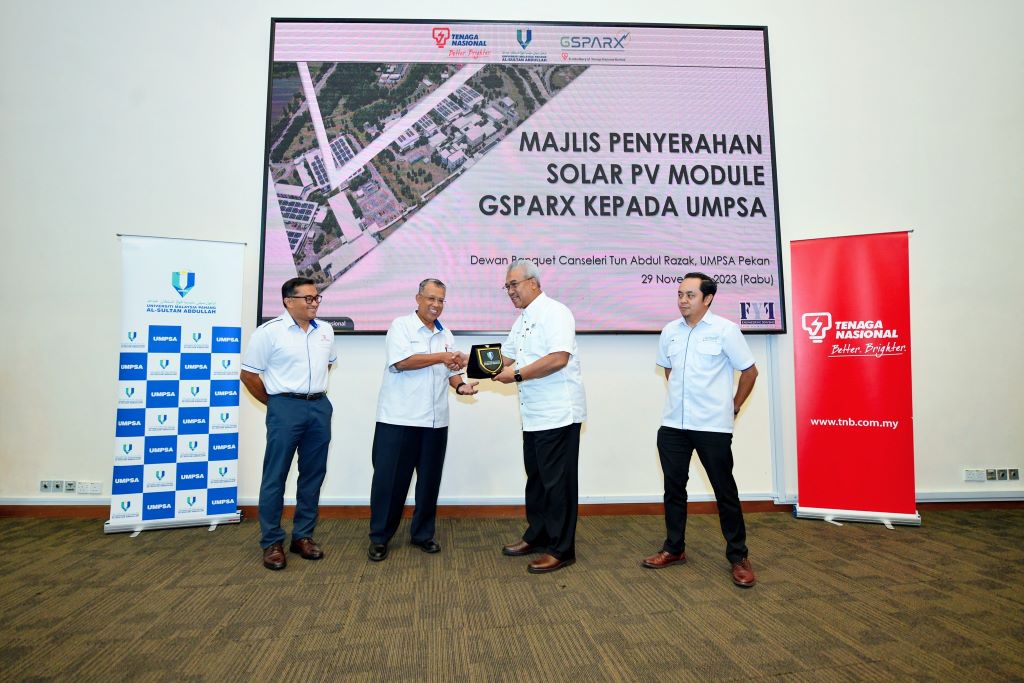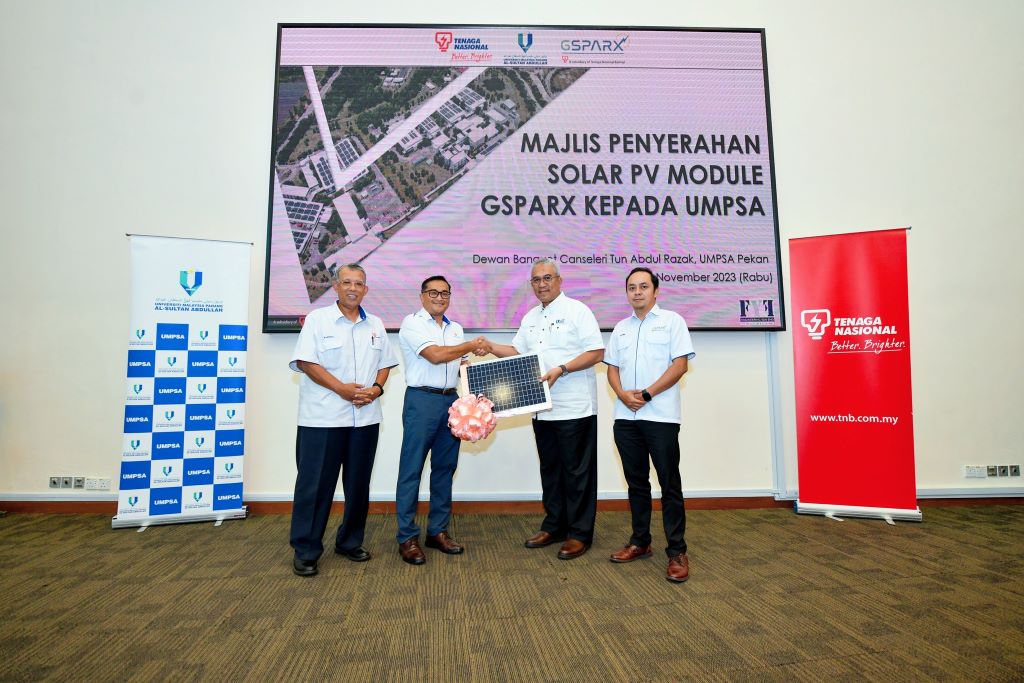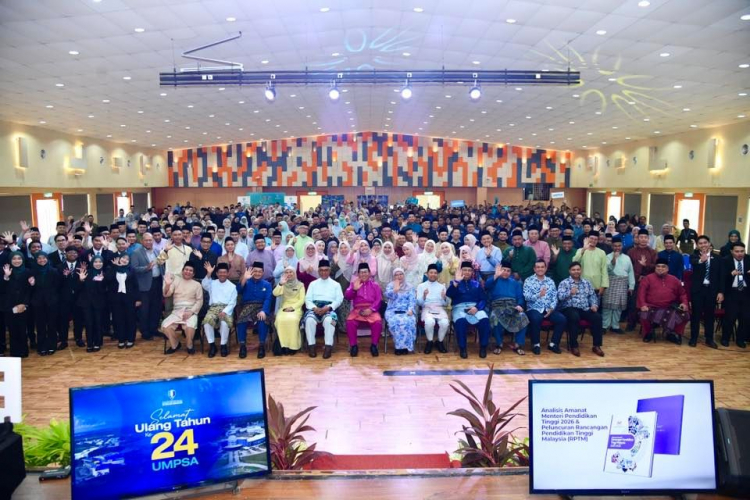UMPSA saves up to RM600,000 a year using solar power on its assets
KUANTAN, 29 November 2023 - Universiti Malaysia Pahang Al-Sultan Abdullah (UMPSA) is now expected to reduce carbon dioxide (CO2) production of its Pekan campus by 47%, equivalent to savings in electricity bills between RM400,000 and RM600,000 per year thanks to the installation of solar panels with 3.58 MWp capacity.
UMPSA, as one of the best universities in the Malaysian Technical Universities Network (MTUN), now has floating solar on the university lake equipped with a solar panel flotation system designed to withstand weather changes.
This keeps the solar panel platform and operating equipment balanced on the water surface.
UMPSA continues to demonstrate its commitment to the Sustainable Development Goals (SDGs) to assess the university’s efforts in addressing the world’s environmental, social and governance (ESG)-related problems towards achieving the target of a carbon-free country through the Floating Solar Project built on the university lake.
UMPSA established a smart collaboration with Tenaga Nasional Bhd. (TNB) through its wholly-owned subsidiary, GSPARX Sdn. Bhd. (GSPARX) through the installation of rooftop solar panels to further expand its sustainability characteristics.
Currently, the floating solar consists of 240 solar panel units, 1 inverter unit of 125 amp and more than 136 floaters, covering an area of 2,574 square meters.
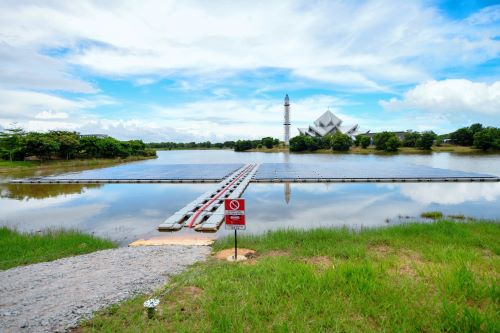
Present in the solar project submission programme was the Vice-Chancellor of UMPSA, Professor Dato’ Ts. Dr. Yuserrie Zainuddin, Head of Federal Government Sector, GLB, TNB Retail, Mohd Fadhil Noordin, General Manager of TNB Pahang, Dato’ Haji Baderul Sham Saad, Chief Executive Officer, GSPARX, Elmi Fairul Mashuri and Chief Executive Officer of FYF Sdn. Bhd., M. Khairul Shamsul Nizam M. Razali.
According to the UMPSA Vice-Chancellor, Professor Dato’ Ts. Dr. Yuserrie Zainuddin, UMPSA is actively carrying out initiatives to foster awareness of sustainable practices.
“Among them is solar installation at this university which involves three methods, namely installation on the building roofs, installation on the parking lot or in technical terms building-integrated photovoltaics (BIPV), and solar installation on the lake surface.
“This solar project has a floating solar panel with a capacity of 159 kWp for electricity generation which is expected to generate at least 197,319 kW of energy per year.
“In addition, it also has the potential to offset the emissions of 126.1 tons of CO2 gas and realise UMPSA’s aspiration to achieve the goal of becoming a carbon-free country," he said.
He said the solar panels with 3.58 MWp capacity were installed at eight locations in the UMPSA Pekan campus, namely six rooftop locations involving the Tun Abdul Razak Chancellery building, Multipurpose Hall, Faculty of Electrical and Electronics Engineering Technology (FTKEE), Faculty of Mechanical and Automotive Engineering Technology (FTKMA), Faculty of Manufacturing and Mechatronic Engineering Technology (FTKPM) and Faculty of Computing (FK).
“Meanwhile, BIPV installations have been made at the parking lot of the Centre for Property Development and Management (PPPH) as well as floating solar installations.
“UMPSA always strives to introduce sustainable technologies and practices to the community, educate and more importantly, become a role model on sustainability principles.
“Universities play a vital role in cultivating sustainable practices and renewable energy by taking initiatives on efforts to foster awareness of sustainable practices,” he said.
He said this includes taking measures to improve energy efficiency and reduce the use of fossil energy sources.
“These include the use of advanced energy management technologies such as efficient cooling and heating, the installation of energy-efficient LED lighting as well as the use of smart automation systems to control energy consumption.
“Through these measures, UMPSA also serves as a centre for innovation, research, and education in fostering sustainable practices among stakeholders including graduates,” he explained.
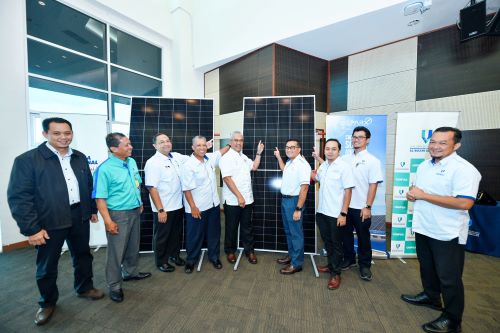
Meanwhile, Mohd Fadhil also hoped that the collaboration between UMPSA, TNB and GSPARX could open up more potential and opportunities to explore various energy-related aspects.
The university also plays an important role in preparing graduates who are sensitive to sustainability issues and readying future generations to face global challenges related to energy and the environment.
UMPSA also received a Three Diamond recognition for Low Carbon Building Assessment from the Sustainable Energy Development Authority (SEDA) recently, proving UMPSA’s ability to implement efficient electricity usage, renewable energy use and carbon dioxide emission reduction.
By: Nur Ainaa Adhreena Muhamad Shukri, Centre for Corporate Communications
Translation by: Dr. Rozaimi Abu Samah, Faculty of Chemical and Process Engineering Technology
- 450 views


